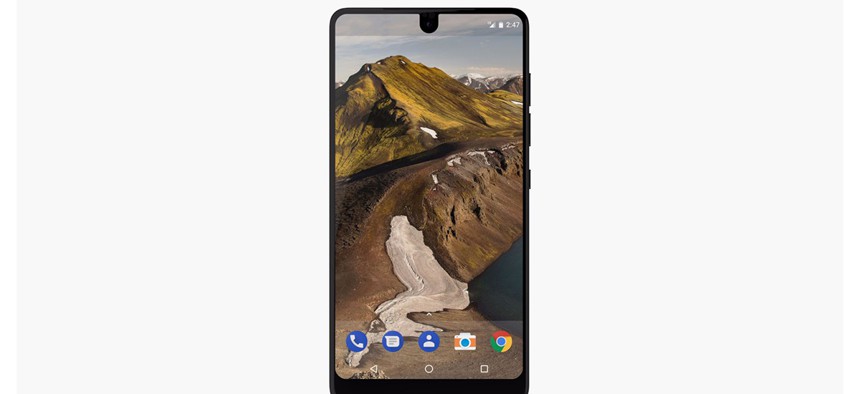Launching His New Company, Even the Man Who Built Android Doesn’t Think He Can Beat Android

Essential
This is what smartphone nerds have been waiting for.
Why rebuild the technology that’s already taken over the world?
Andy Rubin—the ex-Googler famed for co-creating Android, which is now on 88 percent of smartphones worldwide, and who helped build the Sidekick smartphone—has unveiled his latest company called Essential, which strikes at two of tech’s biggest current obsessions: a smart speaker to go with your smartphone.
Essential Phone

This is what smartphone nerds have been waiting for: a phone designed by the guy who practically invented the modern smartphone user interface. But the smartphone, called the Essential Phone, only has a new exterior. Rubin has chosen to use the Android operating system, as opposed to competing with the software giant he helped build, for his new phone. (Rubin’s new speaker uses his own proprietary OS; more on that shortly.)
The choice is a bit bizarre but sensible—there’s no reason to compete with something you helped build and that dominates the market if you can’t offer something completely better. It’s a statement that even in a world of software, where the biggest choice when deciding to buy a smartphone is Android or iOS, you want to buy this phone for its hardware.
The phone’s screen covers nearly the entire face of the phone, running edge-to-edge save for a cutout where the front-facing camera is placed. The casing is ceramic and titanium, a combination that makes the phone more durable than competitors, according to Essential. A fingerprint sensor on the back of the phone is flanked by a dual camera system and small, round electrical contacts for snap-on gadgets. It looks like a 2017 update to Apple’s most popular phone design, the iPhone 4, which is still being sold by Apple in modified form as the iPhone SE.
Rubin seems to be relying on the phone’s screen, design and his personal clout to sell this smartphone, because otherwise the phone’s specs are mostly on par with the competition. It has a Qualcomm 835 processor, 4GB of RAM and a generous 128 GB of storage, all available elsewhere, and will run Android Nougat 7.1.1 out of the box. Following in the footsteps of Apple, Rubin’s phone does not have a headphone jack, but has a USB-C port and will come with a dongle.
However, the Phone will come with a 360-degree camera that snaps onto the back of the device—it’s more of a promise of modularity than anything else, and the company hasn’t said what other snap-on gadgets are planned.
Essential Home
What’s a smart speaker when it has a screen? Much like the recently-announced Amazon Echo Show, the Essential Home can do the basics: it will answer simple questions, control the lights, set timers, according to The Verge.

The Essential Home has this entirely new operating system called Ambient OS. Building a new OS for the smart speaker, while leaving the Essential Phone to run Android, shows the strength of Android and the dearth of choices for smart-home platforms. While Amazon has opened Alexa to run on other smart speakers, Essential would then have two masters it relies on for software—Google for Android and Amazon for Alexa.
Rather than calling out to each smart device over the cloud as happens now, Ambient OS interacts with supported smart devices over the user’s home network, keeping data more private. Its assistant’s “AI engine,” which has not been explained, also runs locally on the device, meaning responses come quicker and your data doesn’t live on the company’s servers. Wired reports the device will be coming later this year, with no hard date.
NEXT STORY: Windstream drops EIS protest





